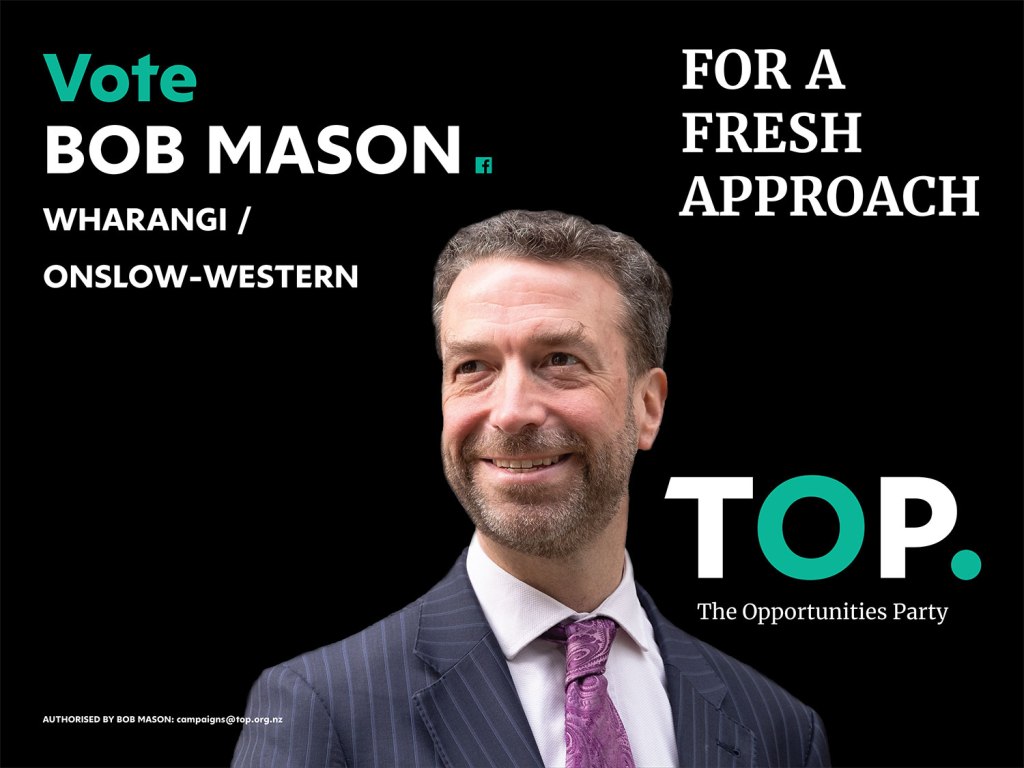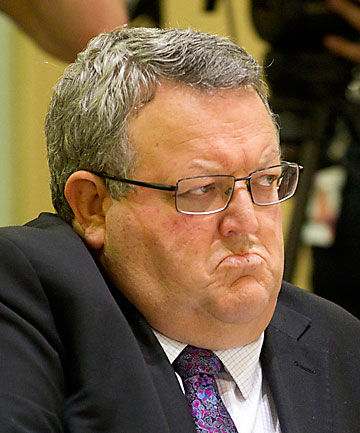The Greens are coming for Labour… in Wellington, at least.
The standard media take when the dust settled on the local body elections was that NZ had stuck two fingers up to the ‘woke’ government and lurched to the right. The truth, as always, is found in the data: the victories of Brown and Mauger after 12 years of Goff & Len Brown and 9 years of Lianne Dalziel respectively may be nothing more than voters tiring of the centre-left after a long period, rather than any specific issue. Mayoralty races are much less big ticket here than they are in the UK and US, say, where local bodies have more power and responsibility, and mayors in particular have decent mid-sized executive powers. In NZ, they have little more clout than a casting vote. As impressive as Tory Whanau’s rampant win was, she will be relieved to see that a solid progressive majority has also been returned to council – that alone should make it easier for her to get stuff done than the more divided house under Foster.
And once those left-leaning specials came in a few days later, the initially right-leaning compositions of Auckland and Christchurch councils have taken on a more balanced hue. Mauger in particular will have his work cut out to build consensus, when many candidates he endorsed failed to be elected, and many incumbents he criticised were re-elected.
In that sense, Wellington, which has always had a slightly more progressive centre of gravity than the other two major cities anyway, is hardly the out of touch, woke outlier that the more feverish rightwing Twitterati have suggested. Yet something significant happened within that progressive vote, which may hint at something bigger to come.
The Greens’ campaign was, in a word, outstanding – from the mayoralty race right down to the community board level. They ran a fully-endorsed candidate in every ward, including two successful candidates for a GWRC ward – more on that later. Anecdotally from my own campaign observations, they seemed to have more supporters at candidate meetings than Labour, and even more canvassers. Green MPs like Swarbrick and Genter came out door knocking with ward candidates. Tory Whanau made a point of turning up to support Green candidates at their meetings, even when she was not required as mayoral candidate. In contrast, the disconnect between Labour-endorsed Paul Eagle and the Labour candidates was palpable.
And the results are more than just about 6 Greens to 4 Labour. In four wards, the Labour candidate was behind the Green (or 2 Greens in the case of Lambton) on first preferences. [The final results tally of an STV election is misleading because as soon as candidates meet the quota and are elected, their surplus votes are redistributed, meaning that candidates that finish third on first preferences can finish ‘above’ candidates elected earlier – therefore, the voting round at which a candidate is elected indicates the true finishing order].
It was very close, but Nīkau Wi Neera taking the Māori ward from Matthew Reweti, was stunning. The Green party vote in all 7 Māori electorates has often been quite some distance behind the Labour vote, compared to progressive-leaning general electorates (Marama Davidson came fourth in the 2014 Ikaroa-Rāwhiti byelection, for example). It was hard on Reweti and possibly more of a comment on Labour’s decline in national polling, but there is another Green seed that may grow there.
The most astonishing part of the campaign, however, was for the Greater Wellington Regional Council. The received wisdom with STV is that you cannot run two branded party candidates in one ward or area because inevitably one of the two picks up most of the first preferences and the other is left with lots of second preferences but not enough firsts to avoid an early elimination. Indeed, the Greens’ hoarding in my ward openly advocated voting #1 for Thomas Nash and #2 for Yadana Saw. I raised this with Tory Whanau over a coffee, suggesting this was a terrible mistake unless they had some cunning plan to segment the Pōneke ward. Boy, was I wrong. Obviously, in other wards, the branding message was reversed to promote Yadana #1 and Nash #2. Normally that level of geographic voter segmentation requires very careful planning and canvassing.
They totally nailed it. Indeed, they came in 2nd and 3rd place on first preferences (Yadana with 9734 and Nash with 9396), with the top five getting elected. That requires so much disciplined messaging – you have to door knock and/or phone bank every single Green voter and ensure that they get their 1 & 2 preferences the right way round depending on the area. And for those two to beat the sole Labour candidate and incumbent GWRC chair, Daran Ponter, into 4th place, was remarkable.
I can hear the screeching tyres of the caveat cavalry arriving already though. “It’s just a local body election. Labour still have 4 councillors, more than at any time in recent history, despite tough national polling.” This is true, and midterm locals are not always indicative of national level elections. Yet there are now 5 Green or ex-Green councillors plus the mayor. And the Green party vote has been quietly growing in Wellington for some time from election to election. For a long time they have focused on the party vote in general elections, until Chloe Swarbrick managed to take Auckland Central in 2020. That ought to have given them confidence to try and nab a Wellington seat next year. If Julie-Anne Genter was serious when she tweeted that she was planning to contest Rongotai, then you would have to say that the seat is vulnerable and the goal achievable.
With TOP rising in national polling too, and with a clever plan to get an electorate seat in Ilam, there is increasing pressure on Labour from their left and their centre. So it’s hardly a good time to be facing a nasty byelection in Hamilton West, rising inflation and interest rates and lingering pandemic and voter fatigue.



















